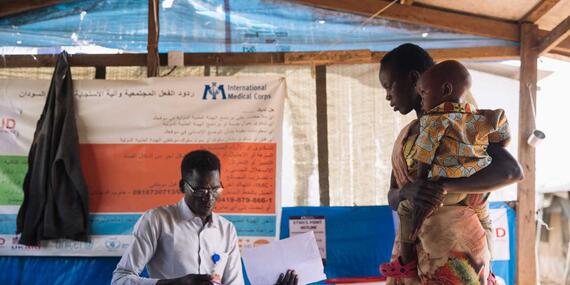Today's top news: South Sudan, Lake Chad, Afghanistan

South Sudan
Today, the Humanitarian Coordinator ad interim in South Sudan, Peter Van der Auweraert, strongly condemned a new attack on humanitarian workers and assets in the east of the country.
On 18 January, several armed attackers broke into a compound of an international non-governmental organization (NGO) in Pibor injuring one humanitarian worker. The attackers targeted the NGO looking for cash and other assets and stole valuables.
This is the third attack this month, after the killing of two aid workers in the Abyei Administrative Area and another aid worker in Jonglei State.
Vulnerable communities are indirectly impacted by these attacks as they hamper the delivery of much-needed live-saving support to millions of people.
South Sudan is one the most dangerous places for aid workers, with nine humanitarian workers killed in the line of duty and 450 incidents reported in 2022 and already three humanitarian workers killed in 2023.
In 2023, 9.4 million of the most vulnerable people in South Sudan will need urgent assistance and protection, up from 8.9 million in 2022.
Lake Chad
The Third High-Level Conference on the Lake Chad Region opened this morning in Niamey. The two-day event brings together the Governments of the region - Niger, Nigeria, Chad and Cameroon - as well as international donors and partners, multilateral and international organizations.
Speaking at the opening, the Assistant Secretary-General for Humanitarian Affairs, Joyce Msuya, called for coordination among humanitarian, development, peace and stabilization efforts.
“Immediate humanitarian action is necessary to save lives, but humanitarian action, as we have heard before, will not be enough to end the misery” said Ms. Msuya. “Unless we tackle the root causes of the crisis, the region’s wounds will not heal”.
She stressed that our commitment must be measured in decades and not years to build lasting resilience to the shocks we know are coming and the dramatic changes that are already causing so much hardship.
Afghanistan
Following the visit last week of a High-level UN delegation led by the Deputy Secretary-General, Amina Mohammed, a delegation of senior UN and NGO leaders is currently in Afghanistan to examine the aftermath of the ban on Afghan female NGO workers and engage with the de facto authorities on the issue.
The delegation is led by UN Humanitarian Chief Martin Griffiths and includes the President and Chief Executive Officer of Save the Children US, Janti Soeripto; the Secretary General of Care International, Sofía Sprechmann Sineiro; and the Deputy Executive Director of UNICEF, Omar Abdi.
The visit comes one month since the de facto authorities banned Afghan women from working in national and international NGOs, putting some programmes on hold and sowing fears that the humanitarian situation in Afghanistan, already dire, will get even worse.
Some 28 million people need aid in Afghanistan, a 350 per cent increase in just five years, according to the latest Humanitarian Needs Overview for Afghanistan released just today.
Members of the delegation will brief the press upon their return to New York next week.
